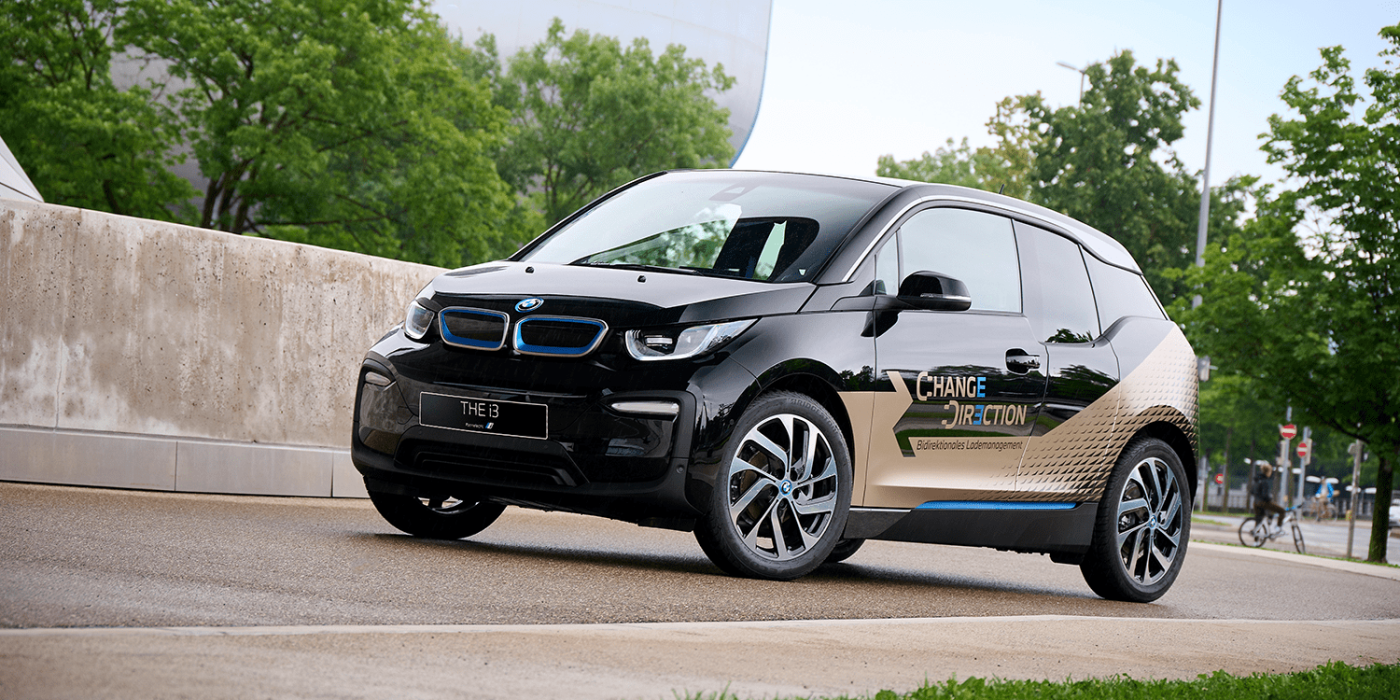V2G project BDL starts field trial with 50 BMW i3
In Germany, the announced field trial with 50 BMW i3s converted for V2G has now begun for the research project ‘Bidirectional charging management – BDL’ that was launched in 2019. As of a few days ago, 20 of the BMW i3s are now in customer hands, and the remaining 30 will soon be handed over to commercial users.
In the field trial, private and fleet customers with the compact cars will now be equipped with regenerative capability, suitable charging hardware and associated digital services in order to test the benefits and user-friendliness of the solutions developed so far in the course of the project under real conditions. According to the initiators, the practical test run should create the basis for later series and area-wide use of the technology to integrate electromobility into the German power grid. The project was originally scheduled to start at the beginning of 2021 and run for one year. It is not clear from the company’s latest statement on the project whether the duration will be shortened as a result of the delayed start.
Participants – including BMW subsidiary Alphabet as a fleet customer – will receive the aforementioned vehicles with corresponding technology on board, as well as intelligent wallboxes from Kostal and the networking of electric vehicle and wallbox and domestic electrical installation with the power grid. The first function that customers will be able to experience will be the optimisation of their own consumption from the electricity generated by their own photovoltaic system. In the second stage, vehicle-to-grid (V2G) functions will be added, which will allow customers to participate in new business models for energy trading and power grid stabilization. In a third stage, companies with electric vehicle fleets would be added. These will use the vehicles as short-term storage to avoid power demand peaks occurring in the daily load profile.
Companies and institutions from the automotive industry, energy sector and science research have been involved in Bidirectional Charging Management – BDL since 2019. Their goal is to link vehicles, charging infrastructure and power grids in a holistic approach in such a way that the most extensive possible use of regeneratively generated energy is promoted while at the same time increasing supply security.
The project is funded by the German Federal Ministry for Economic Affairs and Energy under the auspices of the German Aerospace Center (DLR). According to the schedule, the project will run for three years and, in addition to regenerative systems for vehicles and wallboxes, will also develop technologies for energy management systems as well as hardware and software for controlling charging processes. The project will also evaluate legal and regulatory framework conditions.
With bidirectional charging, the batteries in electric cars can not only draw power from the grid but also feed power back into the grid – assuming a charging station is designed for this purpose. This is a big difference from another project that BMW is pursuing together with grid operator TenneT: Smart charging control can be used to temporarily reduce the charging power of electric cars from outside the grid. This can help to absorb peak loads. Here, however, no energy is fed back into the grid. The advantage is that no special charging station is needed, the car communicates directly with the grid operator.
With bidirectional charging such as in the BDL project, if as many electric cars as possible are integrated into the power grid in this way, they can act as mobile energy storage units to help absorb peak loads and stabilize the power grid – since they can also feed energy back into the grid, the effect is significantly greater than with pure load management. At the same time, volatile renewable energies such as solar and wind power can also be used to the maximum.
In individual cases, the integration of electric cars into the power grid as primary control energy has already been successful. However, according to BMW, integrating as many electric vehicles as possible into the power grid requires “a wide range of innovations in the areas of vehicle technology, charging hardware, charging management and communication interfaces to energy industry stakeholders, as well as with regard to legal framework conditions.”
These are being developed as part of the research project that in addition to consortium leader BMW Group, also involves Kostal Industrie Elektrik GmbH (development of charging hardware), transmission system operator TenneT, distribution system operator Bayernwerk Netz GmbH, (both specialised in energy system services), Forschungsstelle für Energiewirtschaft e.V. (FfE) and the Forschungsgesellschaft für Energiewirtschaft mbH (both specialised in energy system analysis), the Karlsruhe Institute of Technology (KIT focussing on research on electricity market and grid feedback), and the University of Passau (user research).
Reporting by Cora Werwitzke



0 Comments